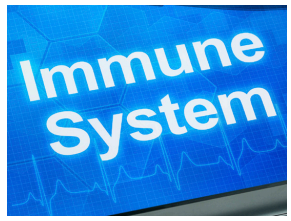Naturalizer Health
Now at two locations:
Clarington's Wellness Path
103 King St. East
Bowmanville, ON L1C 1N4
(see a map)Telma Grant Physio
234 King St. East
Bowmanville, ON L1C 1P5
(see a map)For information Call or Text Catheryne905-431-8217
- Sign up to receive news and updates and get my free report:“The Top 10 Reasons to Try Acupuncture”

-
Latest Articles:
- • Spring Clean Your Way to Better Health •
- • 5 Healthy Ways to Embrace the Spring Season •
- • Fun Things to do this Spring •
AcuNews
What is “Damp” and how Acupuncture and TCM helps

Dampness is an insidious beast. It works its way in, silent and sneaky. Before you know it, you’re filled with it, and you can barely get out of your own way.
Damp is a term acupuncturists use when the fluids of the body aren’t being processed correctly, leading to a buildup that can settle in and make itself at home in almost any area of the body. This, in turn, can lead to a wide array of mental and physical issues.
If dampness invades the entire physical body, it can cause weight gain, sluggishness and lack of motivation. Think of how you feel on a foggy, rainy day. Now imagine that fogginess and sogginess being inside of you. You would feel heavy, bloated and slow. You would be more comfortable just sitting around, rather than engaging in movement. Your thoughts might be a bit confused, rather than clear and concise. This is what happens when there is an infestation of dampness.
If the dampness attacks specific areas, it leads to heaviness and dullness in whatever part of the body it festers in. If it settles into the head, it can cause a dull headache that feels as if a band is squeezing the head. This type of headache generally tends to either be stimulated or worsened by damp weather. Dampness in the head can also cause sinus pain or a stuffy nose. From an emotional standpoint, dampness can muddle the thinking, making it hard to think clearly. In the extreme, it can lead to mental impairment. If dampness attacks the digestive system, it can cause vomiting of fluids, diarrhea or abdominal pain. With internal issues, damp usually transforms into damp-heat. Damp-heat of the intestines causes bloody, painful diarrhea. Damp-heat in the lower burner of the body can bring on sores, painful and burning urination or a host of other issues. If it is hot and oozy, think damp-heat.
Pain caused by dampness is heavy, usually severe, and stays fixed in one place. Arthritis can fall into this category: the pain is concentrated in one place, the afflicted area is stiff and hard to move, and damp weather usually makes it feel worse.
The true evil of dampness is that it is a self-propelling cycle. It weighs you down and resists change. That person who feels sluggish and weighed down could dissipate some of their dampness by moving, but the sluggishness makes the person want to sit still. That lack of movement creates more dampness…and so it continues. Fortunately, acupuncture and herbs are wonderful options for getting rid of this dampness.
Cultivating Good Health Part 2: Focus on Gut Health
This is Part 2 of a series of newsletters about cultivating good health. Last month’s discussion was on the benefits of a good night’s sleep as one of the pillars of developing Zheng Qi. You may recall that Zheng Qi, translated as Upright Qi, is the vibrant energy coming from those who live a healthy life.
Part of cultivating good health is a robust immune system. A healthy immune system is your best defense against ALL diseases. It is also one of the pillars of Zheng Qi.

Did you know that most of your immune system is located in your gastro-intestinal tract? And that the GI tract plays a key role in balancing the immune response? In the gut is a huge network of lymph tissue called Gut Associated Lymphatic Tissue, or GALT. The beneficial bacteria in your gut constantly interface with GALT, “teaching” the immune system how to respond to pathogens and food alike. So what you eat has a profound effect on your immune system. In fact, there is nothing more fundamental to maintaining good health and building immunity than a healthy diet.
The hundreds of species of intestinal bacteria help digest food. In fact, the GI tract is an eco-system or “microbiome” where biodiversity matters – the more species, the better. Exciting research is being done worldwide, implying that lack of biodiversity may lead to many chronic diseases that degrade the quality of your life. To learn more go to: http://www.thestar.com/news/world/2015/05/10/to-be-healthy-take-care-of-your-microbiome.html
Certain foods, like sugar and animal fats, promote inflammation. Fiber reduces inflammation and lowers the risk of colon cancer. Inflammation is one of the signs of a hyperactive immune system.
Diseases associated with Inflammation
- Pain
- Gut diseases such as IBS, diarrhea, constipation, acid reflux, bloating, flatulence, leaky gut syndrome, etc.
- Brain fog, lack of concentration, forgetfulness, anxiety, depression, Alzheimer’s, etc.
- Asthma, rhinitis, seasonal allergies, full sinuses, etc.
- Obesity, diabetes
- Gout, arthritis, skin rashes, eczema
- Repeated infections, thrush or yeast infections, etc.

How TCM and Acupuncture helps to create a healthier you:
- A therapeutic diet will help resolve inflammation. A healthy diet for one person may not be right for everyone. For example, contrary to popular belief, not everyone can or should eat raw foods. TCM helps to determine which foods are right for your situation.
- TCM and acupuncture fortify your immune system, using the basic strategy of strengthening underlying weaknesses and calming over-reactive responses.
- It recognizes that various systems in the body are interconnected, so addressing one system has a cascade effect on other systems.
- Acupuncture calms the inflammatory response.
- It also help reduce an over-reactive response to stress.
- Acupuncture and TCM build up Zheng Qi, the vibrant energy of health.
Cultivating Good Health Part 1: Healthy Sleep
Cultivating Good Health
This is the first in a series of 3 or 4 newsletters with the theme of cultivating good health.
Traditional Chinese Medicine (TCM), has a concept called Zheng Qi, loosely translated as Upright Qi. It is the vibrant energy coming from those who live a healthy life. Health is often a lifestyle choice — little “right” decisions that incrementally build health.
Upright Qi is cultivated. But how? The first step is getting adequate restful sleep. Past generations used to average 9 hours of sleep nightly. Nowadays, people often tell me that they only sleep 6-7 hours nightly. Predictably, they do not awaken refreshed.
Here are just a few benefits of good sleep:
- It improves and consolidates memory. It is very important to sleep well before a school exam!
- Sleep also guides our decisions, allowing us to tap into our intuition.
- Sleep regulates ghrelin and leptin, the hormones responsible for the feeling of hunger and satiety. Lack of sleep upsets these hormones leading to weight gain.
- During sleep, fluids in the brain wash away dangerous waste materials, such as amyloid beta. Amyloid beta is a protein produced in the brain that is implicated in Alzheimer’s Disease, a dreaded form of dementia.
For more, go to: https://www.naturalizerhealth.com/insomnia/
How Acupuncture Helps:
According to TCM theory, insomnia is a sign of an imbalance of Qi, the active energy of life. This imbalance can stem from a number of causes such as stress, anxiety, medications, depression, and chronic pain.
- Health equates to energetic equilibrium. Acupuncture restores the normal flow of energy to restore balance.
- It works by addressing the body as a whole.
- Acupuncture reduces stress, anxiety, restlessness, insomnia, depression and pain.
- Acupuncture is drug-free.
February is Heart Month
The Heart according to TCM
February is Heart Health Month in Canada.
 In Traditional Chinese Medicine (TCM), the Heart is the most important organ in the body — it is the master of the body and mind. Any disease affecting the Heart quickly disturbs all other organs and their functions. Physically, the heart is like an engine that powers blood circulation through the body. Qi, loosely translated as energy, moves the Blood, and Blood nourishes the Qi.
In Traditional Chinese Medicine (TCM), the Heart is the most important organ in the body — it is the master of the body and mind. Any disease affecting the Heart quickly disturbs all other organs and their functions. Physically, the heart is like an engine that powers blood circulation through the body. Qi, loosely translated as energy, moves the Blood, and Blood nourishes the Qi.
But the Heart does so much more than just pump blood! It is also involved in thinking, emotions and spiritual consciousness, according to TCM. In western culture, the heart has long been connected with emotions; it is not a coincidence that Valentine’s Day, the day of love, is found in this month. When one’s blood circulation is in balance, thought processes and mental activities function well. Unrelenting stress, however, causes a domino effect in the body, unbalancing the Heart, disrupting hormones and sleep, tensing muscles and breathing patterns, and disturbing our spirit.
The Shen
According to TCM, the Shen is the mental-emotional aspect of a person. The Heart is the throne upon which our Shen peacefully sits. It is said that a healthy Heart with no obstructions does nothing other than allow our spirit to rest peacefully within it.
The Shen enables people to radiate outwards from their spirit. It gives a person the sparkle in their eyes, an inner vitality, joy of being, and an alert mind.
There is a link between physical and mental-emotional health. The healthy functioning of a heart is obstructed mostly by lifestyle choices such as:
- Improper food choices
- Drugs, including alcohol and too much caffeine
- Smoking
- Insufficient or inappropriate exercise
- Lack of sleep
- Poor dental hygiene
- Stress
- Infectious diseases
How Acupuncture Helps:
- Reduces stress, anxiety, restlessness and insomnia
- Improves mental clarity
- Lowers blood pressure and heart rate, which then can lower cortisol and adrenaline levels
- Acupuncture works by addressing the body as a whole.
- Health, in TCM, equates to energetic equilibrium. Acupuncture points restore the normal flow of energy bringing balance and health.
A Few Healthy Heart Tips:
1. Laughter relaxes your blood vessels allowing more blood, along with nutrients and oxygen, to reach all areas of the body.
2. Attitude: We’ve all heard that old-fashioned expression, “Count your blessings”. Try to cultivate a positive attitude even in the face of adversity. Your heart will be better for it! Remember that exercise stimulates your mood and mental function, decreasing anxiety and depression.
3. Exercise: Your heart is a muscle, and all muscles tone up and strengthen with exercise. A daily walk in nature reduces stress hormones and blood pressure. A moderate work-out at the gym, also relieves stress, encourages blood circulation, and strengthens muscles including the heart.
4. Managing Stress: Take time to relax and get rid of stress. Listen to music, spend time with friends, get acupuncture!
5. Sleep well! Good quality sleep reduces stress, improves the health of your arteries, is a factor in weight loss, balances your hormones, gives the body time to repair itself, and keeps the mind sharp. These are a few of the many benefits of a good night’s rest.
6. Take care of your teeth: Did you know there is a direct link between a healthy mouth and a healthy heart. Brush and floss daily!
7. Friendship: The heart is the seat of your emotions. It is where love, intimacy, and bonding to others happen. Many people feel isolated and lonely. Reach out and be a friend!

